More than 100 000 in Southern Africa still suffering a year after catastrophic tropical cyclones Idai and Kenneth
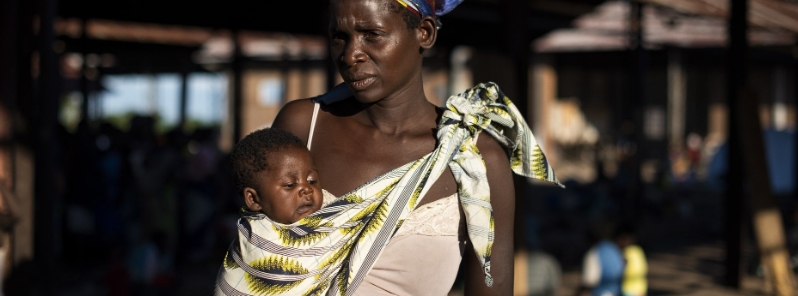
A year after the devastation brought by unusually powerful tropical cyclones Idai and Kenneth, over 100 000 survivors are still suffering, particularly in Malawi, Mozambique, and Zimbabwe.
On March 14, 2019, Tropical Cyclone "Idai" made landfall in the port city of Beira in central Mozambique.
It dumped heavy rain and brought strong winds with it, causing widespread flooding and leaving a path of destruction across Malawi, Mozambique, and Zimbabwe.
More than 1 300 lives were lost, making it the deadliest tropical cyclone in the Southwest Indian Ocean and one of the worst storms to strike Africa.
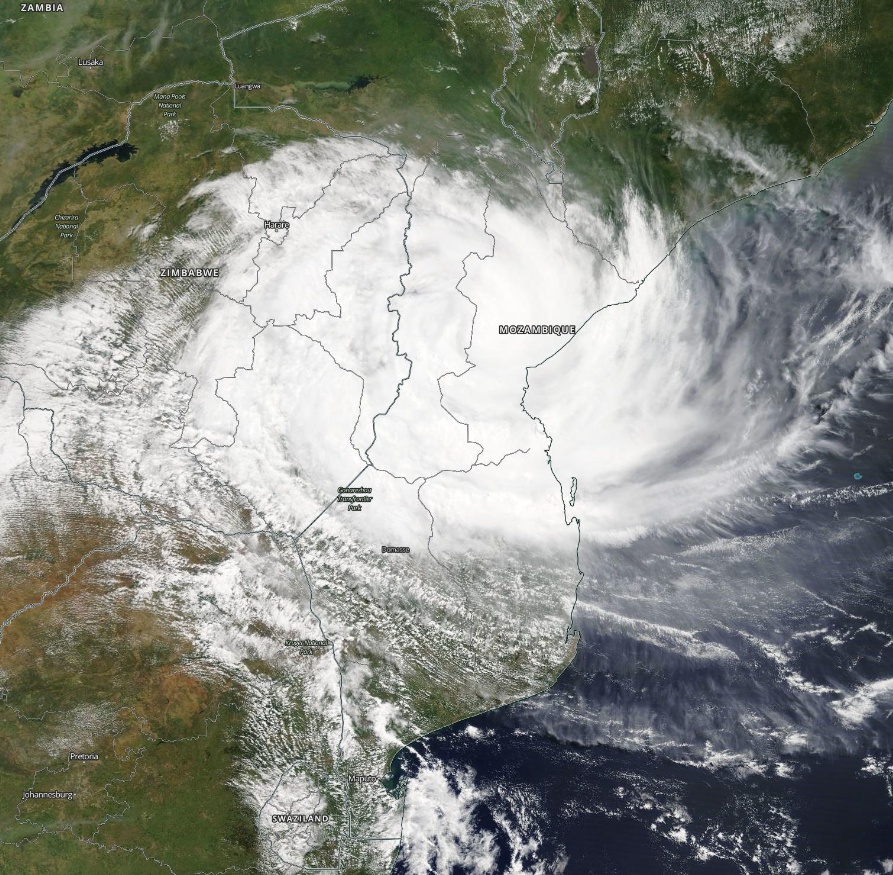
Tropical Cyclone "Idai" on March 15, 2019. Credit: NASA Terra/MODIS
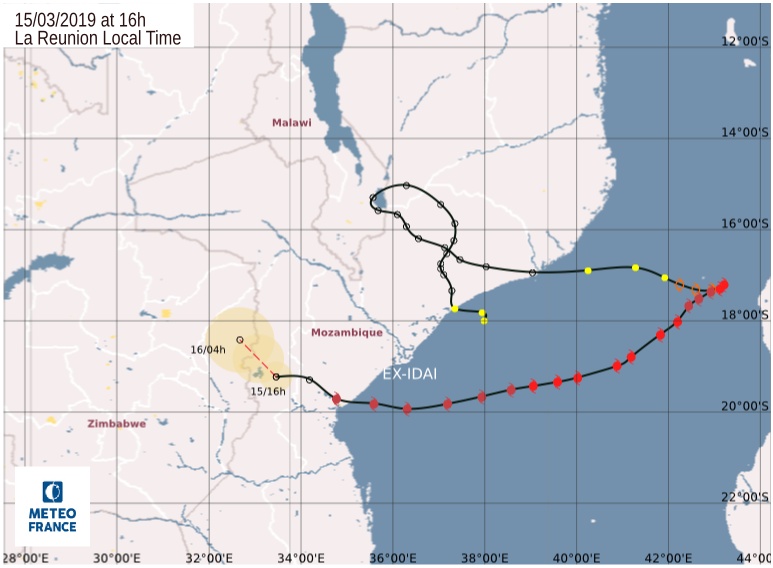
On April 25, Tropical Cyclone "Kenneth" hit northern Mozambique, some 1 000 km (600 miles) north of Beira, with wind speeds of 220 km/h (136 mph) — making it the strongest cyclone on record to hit Africa.
Kenneth claimed the lives of at least 52 people — 45 in Mozambique and 7 in Comoros — and caused extensive damage in both countries.
Idai and Kenneth marked the first time in known history that the country experienced two tropical cyclone landfalls in one season.
Together, the storms left 3.3 million people in desperate need of humanitarian assistance.
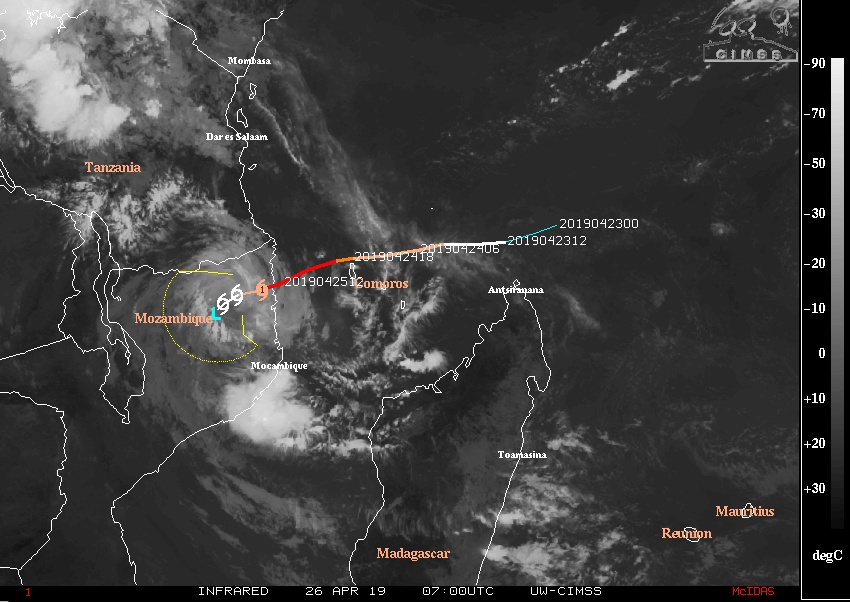
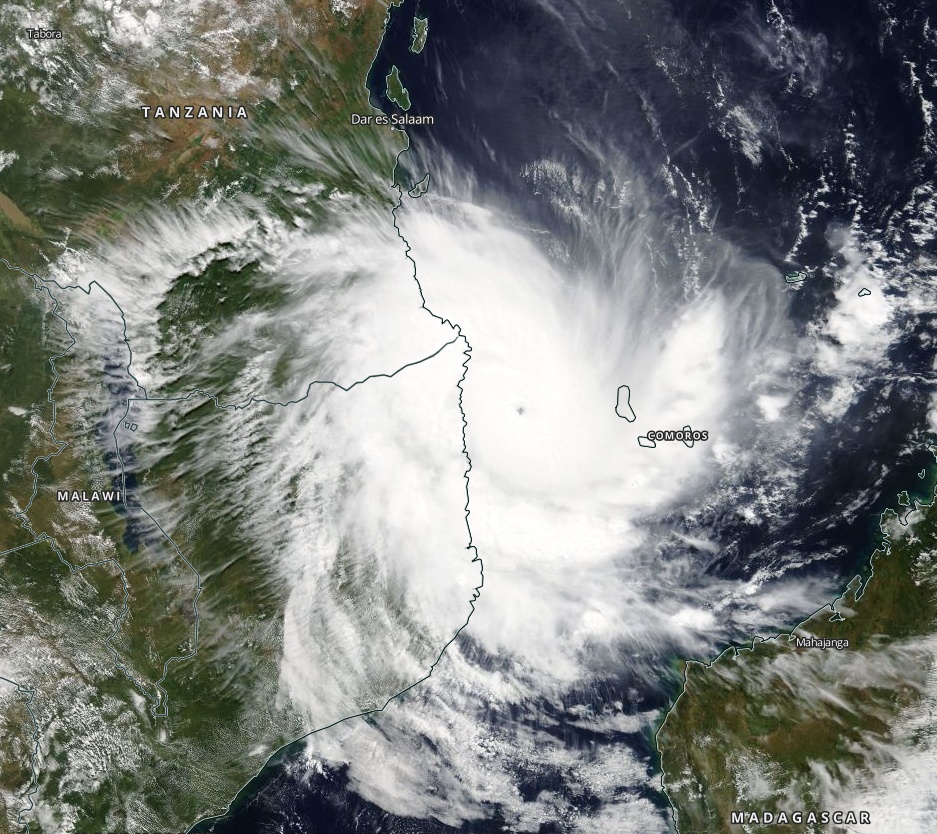
Tropical Cyclone "Kenneth" on April 25, 2019. Credit: NASA Terra/MODIS
In a new briefing by Oxfam called "After the storm: Barriers to recovery one year on from Cyclone Idai" — humanitarians emphasized that more than 100 000 people are still living in difficult conditions in the affected countries, while critical infrastructures have yet to be fixed including roads, water supplies, and even schools. Thus, access to major services is a challenge.
The briefing also noted that 9.7 million people across the three countries remain in dire need of food assistance not only as a result of severe weather but also localized conflict.

"Cyclone Idai was anything but a natural disaster. This tragedy was fuelled by the climate crisis and supercharged by poverty, inequality and the failures of national governments and the international community," said Oxfam Southern Africa regional director Nellie Nyag'wa.
"The people of Mozambique, Zimbabwe, and Malawi are trying to piece their lives back together in the face of huge challenges. Politicians in the region, and across the globe, need to match their commitment."
For the citizens of Mozambique, food is the top concern as the storm affected food security and had an impact on agricultural livelihoods. Trees and other vegetation were ravaged, disrupting a significant number of livelihoods.
Farmer Faife Mufundisse said he lost all his crops, poultry, and livestock. He was among the beneficiaries who received prompt aid from voluntary organizations.
"We were taken to a school shelter by volunteers, for food relief. The help arrived after remaining hungry for so long. They gave us maize meal, rice soup, salt and cooking oil which everyone was desperate for."
12 months after the devastating cyclone, Faife has been living in a makeshift house, "but it is a home, what we want most is water and food." For survivors, food scarcity is the greatest problem.


Virginia Defunho also lost everything in the storm as the crops she planted in the cyclone's aftermath were ravaged by severe floods.
"Idai has destroyed my mind. It makes me feel angry sometimes. My child is crying because he wants food and there is nothing to give. My child has succeeded to grade ten, but I don't have the money to pay for him to enroll back at school," the mother said.
"We are worried about the future because we don't know if the weather is going to be like this or if it will change back to normal. If [the cyclone] comes a second time, what will our lives be?"
Oxfam noted that a delayed international humanitarian response also slowed down the population's recovery. "Less than half of the 450.2 million dollars humanitarian funding requested by the UN in the wake of the cyclones has been committed to date. The flow of funds is also slowing with just 42 000 dollars pledged since the beginning of the year."


Moreover, the organization highlighted that poverty and inequality acted as major barriers to healing. "While the richest live on the highest ground in the strongest houses and can rely on savings and insurance to help them recover, the poorest communities struggle to rebuild their lives."
"Women in Malawi own just 17 percent of the land in the country, even though they produce 80 percent of household food. As a result, women who were displaced from their land are less able to protect their property for their return– and are left at the back of the queue when it comes to accessing alternative plots of land."
Oxfam appealed to ensure that humanitarian aid is fully funded, urging national governments to help safeguard communities, assist farmers, and tackle poverty.


So far, Oxfam has raised more than 15.9 billion dollars to help nearly 800 000 people across Malawi, Mozambique, and Zimbabwe.
"Oxfam and our partners provided emergency assistance such as food aid, blankets, and hygiene kits; installed latrines and water pumps in temporary camps; and helped raise awareness of issues such as gender-based violence, which often spikes after a disaster.
The organization added that they are also "working with communities over the long term to help them adapt to changing the climate– for example by helping smallholder farmers diversify their crops and adapt their farming techniques."
Featured image credit: Oxfam

Commenting rules and guidelines
We value the thoughts and opinions of our readers and welcome healthy discussions on our website. In order to maintain a respectful and positive community, we ask that all commenters follow these rules.